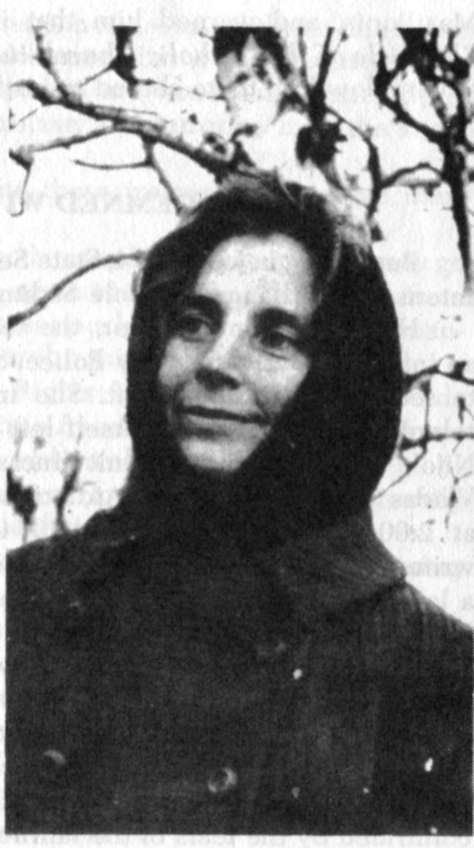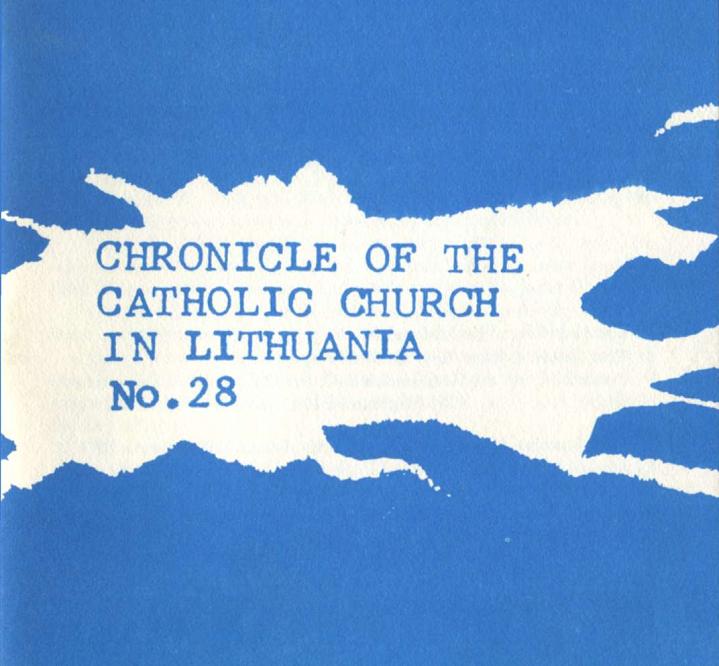Lithuania has been occupied by Russia almost two hundred years—1795-1977—with the exception of a brief 22-year period of independence—1918-1940. During that time, Lithuania has suffered much from its oppressors. She was not only pillaged, but she also had to fight hard and suffer much in her efforts to preserve her two greatest treasures: her Catholic faith and her nationhood. For a long period, Lithuanians were exploited in various ways, persecuted, deported en masse and even killed.
In an effort to save their lives and gain their freedom, many Lithuanians emigrated, most of them to the United States, fleeing military service in the army of the occupants, or death in the snow drifts of Siberia. Separated from parents, brothers and sisters, they never stopped loving the land of their birth and their dear ones suffering there. Even now they feel that they are the children of the same mother, Lithuania.
Our educated and disciplined fellow-countrymen who emigrated were able to get themselves well organized. They established Lithuanian parishes, and organized their own educational and cultural societies and institutes. They publish their own newspapers, harmoniously and perseveringly defend the rights of their oppressed homeland, and are able to find ways to inform even high Church officials and to influence political and social leaders to intercede for their suffering homeland.
When our fellow countrymen here, whether clergy or laity, meet fellow Lithuanians visiting here as tourists, or when they themselves go abroad, they note how many have great difficulty grasping the complex questions of religious life in Lithuania. Even high-ranking clergy, with a few exceptions, are unable to understand or to solve many of our problems, to say nothing of rank-and-file laity.
To: LSSR Minister for Internal Affairs Requests from: Rev. Pranas Masilionis, son of Jonas, Pasvalys Rayon, Krikliniai Parish
Honorable Minister:
Please accept this expression of my respect and goodwill.
I would like to share with you, man to man, my concerns and thoughts.
I will speak honestly, with no intent to offend anyone, trusting in human compassion.
You are probably aware that I have vainly tried for the past six or seven years to gain permission to visit my brothers and sisters in America.
In that time, my brother Juozas has sent me three formal invitations, validated by the Russian Embassy.
The last invitation was also signed by American Secretary of State Henry Kissinger and Ohio's Governor Brown. I am deeply grateful to them.
Unfortunately, all the invitations were turned down, here. No reason was ever given.
Over those years, I have written one letter of request to the Premier, with a copy to you, and the Premier's correspondence department notified me that the request itself was forwarded to the Internal Affairs Ministry; in other words, to you.
Beginning in June 1974, State Security Police agents began a very intense surveillance of Nijolė Sadunaitė.
Her next-door neighbor, the teacher (Mrs) Aidietienė, became an informer for the Security Police. She kept close track of who came to see Nijolė and who left. She informed the Security Police by telephone when Nijole herself left her apartment. Three days alter Nijolė's arrest, Security Agent Vincas Platinskas boasted to her cousin Vladas Sadūnas, that (Mrs) Aidietienė telephoned the Security Police at 2:00 P.M. on August 27, 1974 and notified them that typewriter sounds were coming from Nijolė's apartment. Two hours later, a large contingent of Security Agents arrived, forced their way into Nijolė's apartment and conducted a search. The Security agents said to Nijolė, "You are a Catholic. How can you type the Chronicle of the Catholic Church in Lithuania, which contains only lies and slander about the so-called persecution of believers."
Nijolė boldly replied: "The accuracy of every atheist misdeed revealed in the Chronicle of the Catholic Church in Lithuania is confirmed by the tears of the faithful."
The agents also maintained that the article on the funeral of the late Canon Petras Rauda had probably been written by Nijolė. She denied this allegation, saying that if she had written it, she would have included many more details about the harassment by Security agents during the funeral. Later, the chekists began to ridicule the late Canon Rauda. Nijolė was outraged: "All of you put together are not worth a single toe of Canon Rauda!"
Two hours after the search was begun, one more Security agent arrived and ordered Nijolė's brother, Jonas Sadūnas, to go to Security headquarters for interrogation. Nijolė protested, saying that her brother had pneumonia and they had no right to take away the ailing man, but the Security agents disregarded this.
When the brother was taken away for questioning, his apartment was also searched, but nothing was found.
After Nijolė's arrest, her brother's health grew much worse and he spent one and a half months at the hospital.

Nijolė Sadūnaitė
On April 26, 1977, Tiesa (Truth) printed a long article by the pastor of Sidabravas, the Rev. Vytautas Starkus, "Why I Left the Wrong Road", which tries to convince the reader that the most important factor in Father Starkus' "eye opening" is the Vatican Radio's slandering of the Soviet government. As an example, Father Starkus points to the fact that Vatican Radio accused Soviet motor vehicle inspectors of revoking the driver's license of a sober Father J.(uozas) Zdebskis. In the article, the author Starkus asserts that he has associated with Father Zdebskis and knows that he likes to drink.
Father Starkus writes that, while still studying at the seminary, he became convinced that the Soviet system respects the rights of the faithful.
Every clear-minded reader, who reads the article understands that it is written by the KGB, using Father Starkus' hand.
Father Starkus recounted to priests from Panevėžys the following events: Upon entering the seminary, he was recruited to work as a KGB agent. The Security police agreed to allow him to study at the seminary on the condition that he renounce the priesthood after several years of serving as a priest. Father Starkus agreed to this condition, thinking that he would somehow extricate himself from the KGB trap after being ordained.
Kaunas
On May 22, 1977, the following fifth-year seminarians were ordained priests:
1. Jonas Alesius
2. Ričardas Černiauskas
3. Česlovas Degutis
4. Vytautas Kadys
5. Jonas Kauneckas
6. Stanislovas Linda
7. Marijonas Savickas
8. Vincas Stankevičius
9. Petras Tarvydas
The Village of Levaniškiai (R a y o n of Anykščiai)
The newly ordained priest, Marijonas Savickas, on the occasion of his first Mass at his birthplace, wanted to pitch a tent temporarily on the banks of the Nevėžys River near his homestead, but the local state farm chairman forbade him. Father Savickas then addressed Religious Affairs Commissioner K.(azimieras) Tumėnas. Shortly, the state farm chairman granted him permission to pitch his tent, adding: "If not for foreign countries, we would hang all of you." It seems that Tumėnas explained to the state farm chairman that interference with the first Mass ceremonies might cause an uproar which would be heard abroad.
To: Minister of Education, LSSR
Copy to: Director of the Mičiurnas State Farm Vocational School in Kaunas.
A statement from: Sprindžiūnas, Vytautas, son of Juozas, student at the Mičiurnas State Farm Vocational School in Kaunas, born in 1960, residing in Kaunas, Botanikos 6.
When I arrived for my field study class on June 13th of this year, I was summoned by the school's director who asked where I had been yesterday, June 12th. I replied that I had gone to Alytus to congratulate my friend, a priest, who had graduated from the seminary this year. Then the director and another individual unknown to me forced me with threats and intimidation to write an untruthful statement that I was withdrawing from the school of my own will. When, after I recovered from the initial effect of fear, I wished to withdraw my statement, the director would not return it to me and did not allow me to continue attending my field study classes.
Since the priest had graduated from a state approved seminary, I did not commit a misdeed by congratulating him. No one has the right to expel me from the vocational school for this; I never intended to withdraw from the school voluntarily, and wrote the statement only under coercion.
I ask you, Comrade Minister, to take up my defense, reject the forcibly obtained untruthful statement and enjoin the director to allow me to continue studying at the school.
Kaunas, 6/14/77 V. Sprindžiūnas
Priests from the Diocese of Panevėžys who were either murdered or who suffered in jails and Siberia
Murdered in 1941
1. Rev. Benediktas Šveikauskas murdered in the rayon office
in the city of Rokiškis.
2. Rev. Stasys Baltrymas murdered in Zarasai.
3. Rev. Vladas Didžiokas seized in the cathedral of Panevėžys
and murdered.
Tortured and murdered in jails or Siberian camps:
1. Rev. Petras Liepa arrested in 1949, died 1955.
2. Rev. Antanas Reuba arrested in 1947, died 1951.
3. Rev. Kazys Čiplys arrested 1949.
4. Rev. Balys Beinoravičius arrested 1950.
5. Rev. Petras Margevičius arrested 1949.
6. Rev. Antanas Žakevičius arrested 1950, died 1955.
"Tiesos Kelias" (Way of Truth). In June, the 4th issue of this publication made its appearance. It deals with factual events in the lives of priests. It would be advisable for all the priests in Lithuania to read the article "What Kind of Priest I Would Like to See".
"Rūpintojėlis" (Suffering Christ). In May of 1977, the first issue of Rūpintojėlis, an underground publication made its appearance. In the Preface of this periodical it is stated: "We have chosen the title Rūpintojėlis, since we want this publication to symbolize all that a wayside shrine used to simbolize of the roads of Lithuania." Even though many of its readers received the magazine warmly, they would like to see more articles dealing with actual problems, especially those dealing with our youth. Of benefit also would be to increase the number of copies printed.
"Laisvės Šauklys" (The Herald of Freedom). In May of 1976, there appeared the first issue of a public newspaper of free Lithuanians. Up to now 6 issues of this periodical have been printed. The number of issues printed is very small. "May these pages bear witness to the unquenshable longing of our nation for freedom, about the efforts of those individuals who by almost inhuman means continue the traditions of a free people", proclaim the editors of the first issue of this publication.
Dievas ir Tėvyne" (God and Country). Four issues of this publication have already made their appearance. In the last issue 2 letters of Nijolė Sadūnaitė written from her exile camp and another by the Rev. Antanas Ylius were printed. The Rev. Ylius demanded that the procurator of the TSR that libelious articles and books would be removed from circulation. The following publications dealt in a libelious fashion with the Rev. A. Ylius: "You are not telling the truth, Father", "The Way Against the People", and "Class Struggle in Lithuania (1940-1951). Thirty-two pagees of Dievas ir Tėvyne are taken up with the article "An Inquisition of Christians and Non-Believers." This article deals factualy with the inquisitions during the Middle Ages and compares them with the Godless inquisitions of Hitler's Germany, Soviet Russia, China and other socialist countries.
Lithuanian, remember the following
Petras Plumpa, Povilas Petronis, Nijolė Sadūnaitė, Sergiejus Kovalev. Ona Pranskūnaitė, Vladas Lapienis, J. Matulionis bear the shackles of imprisonment so that you may freely believe and live.







